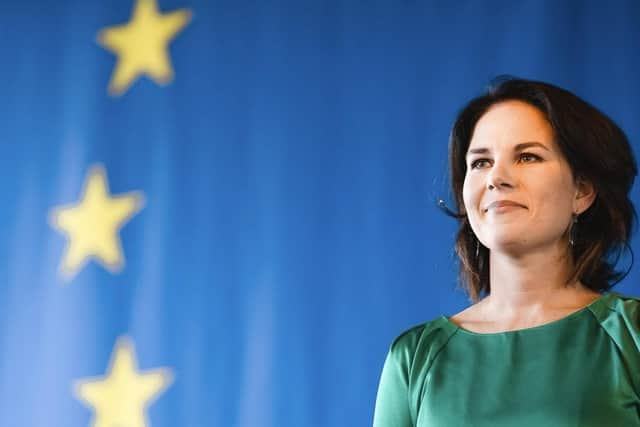War in Ukraine stoking global food and energy crisis, warns G7
German foreign minister Annalena Baerbock, who hosted a meeting of top G7 diplomats, said the war had become a “global crisis”.
“Up to 50 million people, particularly in the countries of Africa and the Middle East, will die in the next few months,” she warned, unless ways are found to release Ukrainian grain, which accounts for a sizeable share of the worldwide supply.
Advertisement
Hide AdAdvertisement
Hide AdIn statements released at the end of the three-day meeting on Germany’s Baltic Sea coast, the group of leading economies pledged to provide further humanitarian aid to the most vulnerable.


“Russia’s war of aggression has generated one of the most severe food and energy crises in recent history which now threatens those most vulnerable across the globe,” the G7 said.
“We are determined to accelerate a co-ordinated multilateral response to preserve global food security and stand by our most vulnerable partners in this respect.”
Canada’s foreign minister, Melanie Joly, said her country, another major agricultural exporter, is ready to send ships to European ports so Ukrainian grain can reach those in need.
“We need to make sure that these cereals are sent to the world,” she told reporters. “If not, millions of people will be facing famine.”
The G7 nations also called on China not to help Russia, including by undermining international sanctions or justifying Moscow’s actions in Ukraine.
Beijing should support the sovereignty and independence of Ukraine, and not “assist Russia in its war of aggression”, they said.
The G7 – which comprises Britain, Canada, France, Germany, Italy, Japan and the US – also called on China “to desist from engaging in information manipulation, disinformation and other means to legitimise Russia’s war of aggression against Ukraine”.
Advertisement
Hide AdAdvertisement
Hide AdThe meeting in Weissenhaus, north east of Hamburg, was billed as an opportunity for officials to discuss the broader implications of the war for geopolitics, energy and food security, and international efforts to tackle climate change and the pandemic.
In a series of closing statements, the G7 nations also addressed a wide range of global problems from the situation in Afghanistan to tensions in the Middle East.
On Friday, Ukrainian foreign minister Dmytro Kuleba appealed to friendly countries to provide more military support to Kyiv and increase the pressure on Russia, including by seizing its assets abroad to pay for rebuilding Ukraine.
He said his country remains willing to talk to Russia about unblocking grain supplies stuck in Ukraine’s silos and also about reaching a political agreement to end the war, but had so far received “no positive feedback” from Moscow.
German Chancellor Olaf Scholz said in an interview published on Saturday that he had not detected any change in Vladimir Putin’s stance recently.
Mr Scholz, who spoke at length by phone with the Russian president on Friday, told German news portal t-online that Mr Putin had failed to achieve the military objectives he set out at the start of the war while losing more Russian soldiers than the Soviet Union did during its decade-long campaign in Afghanistan.
”
Comments
Want to join the conversation? Please or to comment on this article.